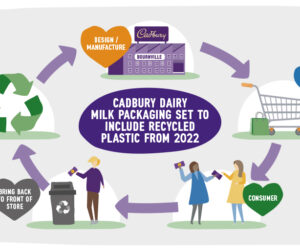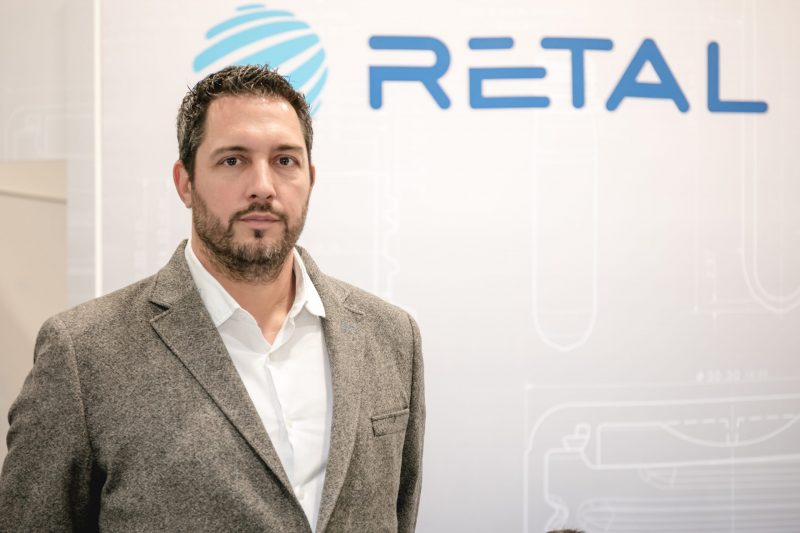

Responsible reporting
Creating a Sustainability Report goes beyond wanting to do the right thing; it represents quantifiable actions that support a company’s focus on ensuring it is operating responsibly and gives an official insight into its progress. Many global companies choose to follow recognized reporting standards for their Sustainability Reports, in order to allow their actions and expectations to be easy to present to global customers, who also require their partners to be held to such standards.
The plastic packaging industry is one where its environmental impact is very much under the spotlight, the drive to be able to show what is being done and what more is planned to be implemented is imperative; to continue to be profitable and to manufacture in a long-term sustainable way. For global plastic packaging manufacturer RETAL, its second annual Sustainability Report, published in October 2020, represents its cross-company efforts to deliver provable actions, presented in a manner which tessellates with the internationally-recognised ISO 26000 standard.
Sustainability Director at RETAL Emmanuel Duffaut has been instrumental in introducing various quantifiable actions across the company’s 19 global manufacturing sites, with the support of the board of directors for this privately-owned company. Duffaut says, “I joined RETAL as Sustainability Director in 2018 and, right from the first day, I’ve been impressed with the positive approach to integrating CSR principles throughout the business. There’s an appreciation that we can really make a difference by operating responsibly, to be a strong business and deliver economic value; we need to be profitable and responsible at the same time, so it’s imperative that our customers can see that we’re doing things right as it helps to protect our suppliers, our business, and our employees.”
For example, RETAL is focused on three axes of action regarding circular economy : increased use of rPET, promotion of Design-for-recycling principles, and education and raising awareness. Duffaut explains, “Each element works in harmony to ensure that we are working in a holistic manner, in areas where we can be impactful. So for education, we are regularly involved in local clean-up activities, we work with our local libraries, schools, and communities to share how we operate responsibly and raise awareness of the importance of recycling plastic. In the current climate it is not so easy to organise group activities, so we’re looking at ways to increase the educational tools on our website and we’re cooperating with local groups for online events.”
Invest in CSR
The increased use of rPET has been part of RETAL’s progressive strategy for some time, with extensive investment in equipment that allows for the production of up to 100% rPET films at the company’s Klaipeda factory in Lithuania. Duffaut continues, “This recent €3.4million investment resulted in larger capacity for the use of rPET flakes and also means that we can process PET post-industrial waste with a wide array of quality and characteristics, including black plastic and different quality grades, and mix them to make a good product of reliable, food-grade quality.”
In terms of Climate Change management, purchasing renewable energy has been a great success story for RETAL, with seven of its plants now consuming renewable electricity representing over 40% of the 19 factories consumption, leading to a 17% reduction of its relative greenhouse gas emissions in 2019. The RETAL Lentvaris factory has also installed the largest solar panel roof plant in the Baltic States.
The 2019 Sustainability Report from RETAL, published in October 2020, is based on the ISO 26000 and the Global Reporting Initiative (GRI) to create an easy-to-read document that stakeholders can refer to in order to get a provable picture of the company’s CSR performance. Duffaut says, “CSR key principles are transparency and accountability towards stakeholders ; as we continue to embed the ISO 26000 standards throughout the business, our sustainability report is playing a major role in the positive results we are seeing, including our EcoVadis Silver Level, and a ‘B’ rating in the CDP climate change survey.”
The report first shows RETAL’s action in each of the ISO 26000 ‘Core Subjects’ (Environment, Labour Practices, Human Rights, Fair Operating Practices, etc.) with the most relevant data and results followed by a set of indicators from the GRI standard.
Ultimately, a corporate Sustainability Report will allow the company’s stakeholders to make an informed decision regarding our relationship. Aside from the transparency exercise, Duffaut adds that, for RETAL, its second annual report also ‘gives value to what we do’. He explains, “We are always looking to improve; the report clearly shows that we have achieved excellent results in a short period with decisive actions, so it helps to build great motivation internally to continue and to become a real front runner in our industry. ”





